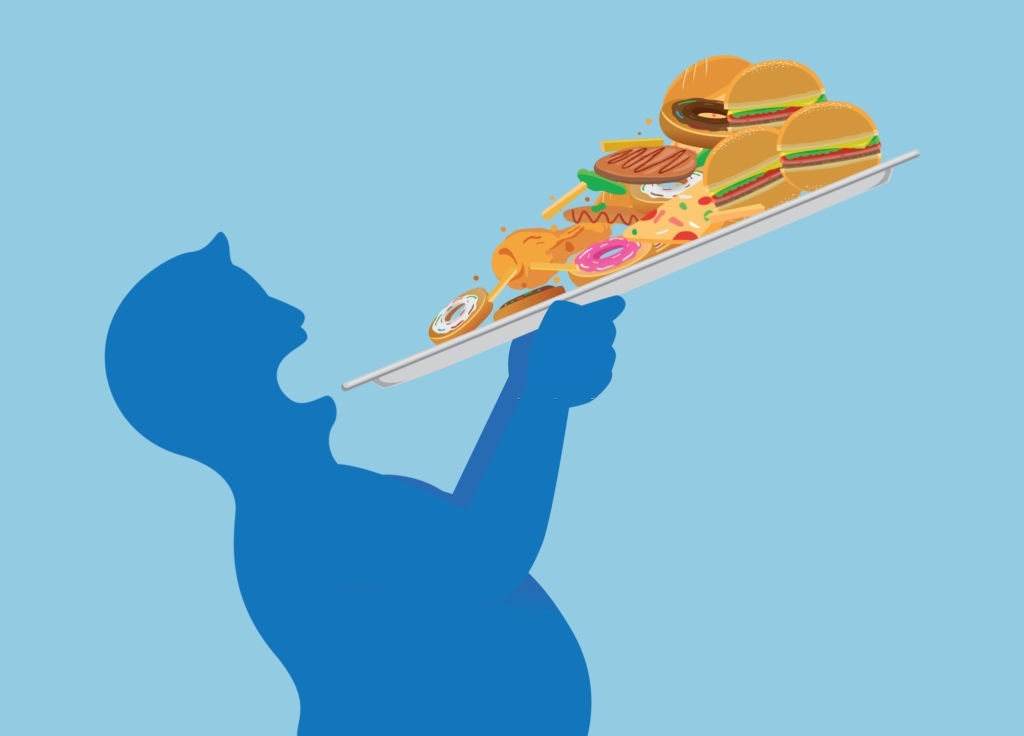Are you practicing correct health promotion goals? Are your diet and health goals affecting you? What are Long term health goals examples? What are your Healthcare goals and objectives?
Unhealthy fitness goals are all too common. Poor fitness goals usually involve concentrating too much on the outcome and not enough on the process or method of getting healthy.
Poor goals include trying to lose a huge amount of weight in a short time span or training for a marathon without allotting enough time. These efforts often lead to weight gain if you do not continue them. Picking a fad diet that doesn’t meet your personal goals is another instance of an unhealthy health goal.
To avoid unhealthy fitness goals, you should concentrate more on the process of getting healthy. Focus your attention on small changes in your eating and fitness habits that will allow you to gradually move towards your overall health goals.
- Method No.1: Concentrate on your Mental Health
- 1) Aim for moderation rather than perfection
- 2) Examine whether your diet and health goals are negatively affecting your social life.
- 3) Think about whether you consider exercise as a form of compensation for poor eating.
- 4) Examine whether you are routinely canceling social events to exercise.
- 5) Seek medical advice if you are unsure about your health goals.
- Method No.2: Avoid Unhealthy Diet Goals
- Method No.3: Avoid Unhealthy Fitness Goals
Method No.1: Concentrate on your Mental Health
1) Aim for moderation rather than perfection
Being a perfectionist in your fitness goals may end up blocking your progress. If you try to be perfect in your brand-new diet and eating habits, you may end up being so tough on yourself that you give up on the diet entirely.
Rather, aim for small or moderate improvements in your diet and try to stick to them.
2) Examine whether your diet and health goals are negatively affecting your social life.

You may want to re-evaluate your new diet if it is preventing you from living the sort of life you want to lead. If your new diet is holding you from attending social events with family and friends, possibly you should modify your dietary goals so that you can still have a social life.
There’s nothing wrong with going out for fast food or ice cream sometimes. As long as you have good and healthy habits overall, you’re fine.
3) Think about whether you consider exercise as a form of compensation for poor eating.

You should not intend to exercise so you can eat more chips, brownies, or other junk food. An exercise program built around compensating for bad eating habits will not make you healthier.
Instead, you should focus on a well-rounded, healthy, wholesome diet and a regular exercise routine.
Exercise should not be a “penalty” for eating something. It should be something you enjoy (or at least tolerate), and that you can feel proud of achieving.
4) Examine whether you are routinely canceling social events to exercise.

Canceling a lot of social events with family and friends to get to the gym or for exercise may be a sign of unhealthy exercise goals. The power of social connections with family and friends is an essential factor in your mental health.
Make sure you aren’t sacrificing a good and healthy social life to get to the gym, since you need both social bonds and an active lifestyle to be healthy.
5) Seek medical advice if you are unsure about your health goals.

Ask your family doctor for consultation on specific health goals that would be healthy for you. In discussion with your doctor, set precise and measurable health goals that are significant to you.
Ask your doctor: “I observe a lot of people doing the vegetarian diet. Do you think this would serve for me?”
Question: “How much should I exercise every week if I want to lose weight by say winter?”
For example, if you need to be able to swim a specific distance by the winter, use this as a starting point for establishing your goals. The goals you set should be precise and you should be able to estimate your progress over time.
Method No.2: Avoid Unhealthy Diet Goals
1) Concentrate more on healthy eating habits and less on a strict diet.

If you desire to lose weight, you may be motivated to start a totally new diet from scratch. However, abruptly starting a new diet frequently results in failure, and yo-yo dieting can actually harm your metabolism.
Start little. Instead, concentrate on adjusting your habits in small ways:
Purchase healthy foods that you enjoy eating. Look for vegetables, fruits, and whole grains. The next moment you feel hungry, reach for those.
Rather than eating in front of the television, try mindful eating. You may be eating too much because you are eating while “spaced out” instead of concentrating on your food. Try to just eat and pay attention to the amount of your food, which may help you to eat less. Quit eating late at night. Consuming a lot right before bed leads to weight gain.
Do not skip breakfasts at any cost. If you tend to skip breakfast, you may end up overeating at lunch. More importantly, you need to have breakfast because your blood sugar levels are low in the morning, and blood sugar is essential for your muscles and brain to function properly. Give yourself time to appreciate a relaxed and fulfilling breakfast.
2) Try to eat until you’re full instead of losing a certain amount of weight.

Aim to train your body to understand when it is full. This is better than trying to lose a specific number of kilograms, which can often be a bad diet goal because it focuses too much on the result and not enough on the basic behavior changes.
You can prepare yourself to notice when you are full by serving shorter portions and combining a “check in” moment at each meal. Serve yourself a little portion. After eating a small portion, check in with your tummy and ask yourself whether you feel full. Grant yourself 5 minutes for the check-in before choosing whether or not to eat more. If you feel full after the 5-minute wait, you don’t need to eat more.
3) Listen to your body.

When you feel starving, your body is trying to tell you something significant. Eat what you need to have. Give attention to cravings. What kind of food are you craving? Fats? Salt? Greens? Know the type of food that your body needs, and look for reasonably wholesome food that fits.
Feed yourself when you’re hungry. If it’s in between meals, try to have a healthy snack.
Don’t eat food that you dislike. Instead, go for healthy food that you can savor. You absorb nutrients adequately when you like what you’re eating. For instance, if you like spinach but hate cabbage, then skip the cabbage and enjoy a spinach salad.
4) Notice if you have a strong urge to binge on “cheat day.”

If you are following a strict diet with 1 day of the week where you allow yourself to consume anything, it is not an excuse to binge on unhealthy food options. If you feel a strong urge to binge, it may be that your diet is too strict and restrictive. Work on getting a better balance.
5) Consider whether you are just following a fad diet.
Your new diet may be toxic if you are simply following a distinct fad diet such as, but not limited to, the Paleo diet or Atkins diet. Although all of these diets can work excellent for many people and a variety of reasons, you should not follow a diet just because it is new and exciting. You should get a diet that works for you and adapt to your body type, fitness, and health goals.
Be cautious about diets that skip or cut out major food groups. These normally aren’t sustainable. If you do make the change, discuss it with your doctor first, and try to do it slowly and gradually.
Method No.3: Avoid Unhealthy Fitness Goals
1) Avoid establishing goals based on external sources of information.
Rather than focusing on goals like losing weight or looking trim, find an activity that you truly enjoy. Build your health goals around an activity that you really like, as opposed to concentrating on abstract goals that you don’t feel connected to.
Instead of concentrating on gaining ripped abdominal muscles, find a sport you like and join the local recreation groups.
Attach fitness to a hobby you enjoy. For instance, if you are a photographer, go for a walk with your camera and take pictures along the way.
Instead of focusing on losing a certain quantity of weight, find an activity you enjoy that includes exercise and devote time to this activity. If you enjoy walking in the park, spend some more time walking in the park and bother less about the amount of weight you need to lose
2) Break down your larger goal into smaller goals.

Instead of focusing on one large goal such as lifting 100 kilograms, focus on short and measurable goals. Your goals should be assessable on a weekly basis.
For instances,
1. If your large goal is to be able to do 10 push-ups, start with just 1, then 2, then 4, and so on.
2. Ifyour big goal is to be able to bike for 2 continuous hours, first work on biking for 30 minutes, then 4o minutes, et cetera.
3. If your big goal is to squat 50 kilograms, focus on the small goal of increasing your squat lift by five kgs every couple of weeks.
4. If your big goal is to lose 10 kilograms, focus on the small goal of going for a run every other day and avoid checking your weight more often than once a month.
3) Avoid demanding instant payback
You should avoid the expectation to see immediate results from your new fitness routine. Going to the gym 3-4 times a week should improve your overall condition if that is your goal, but you are unlikely to notice instant results such as a six-pack or huge amounts of weight loss.
4) Provide yourself enough time to train.

You should give yourself a proper amount of time for achieving your fitness goals. If you save time and train more in a lesser period, you may get injured in the training process. Avoid injuries by giving yourself adequate time to train.
For instance,
If you want to run a marathon and you are a beginner-level runner, you will need around 22 weeks (almost half a year) to get trained. If you don’t give yourself enough training time, you may hurt yourself.
Also read: These Weight Loss Myths That Even Experts Believe





